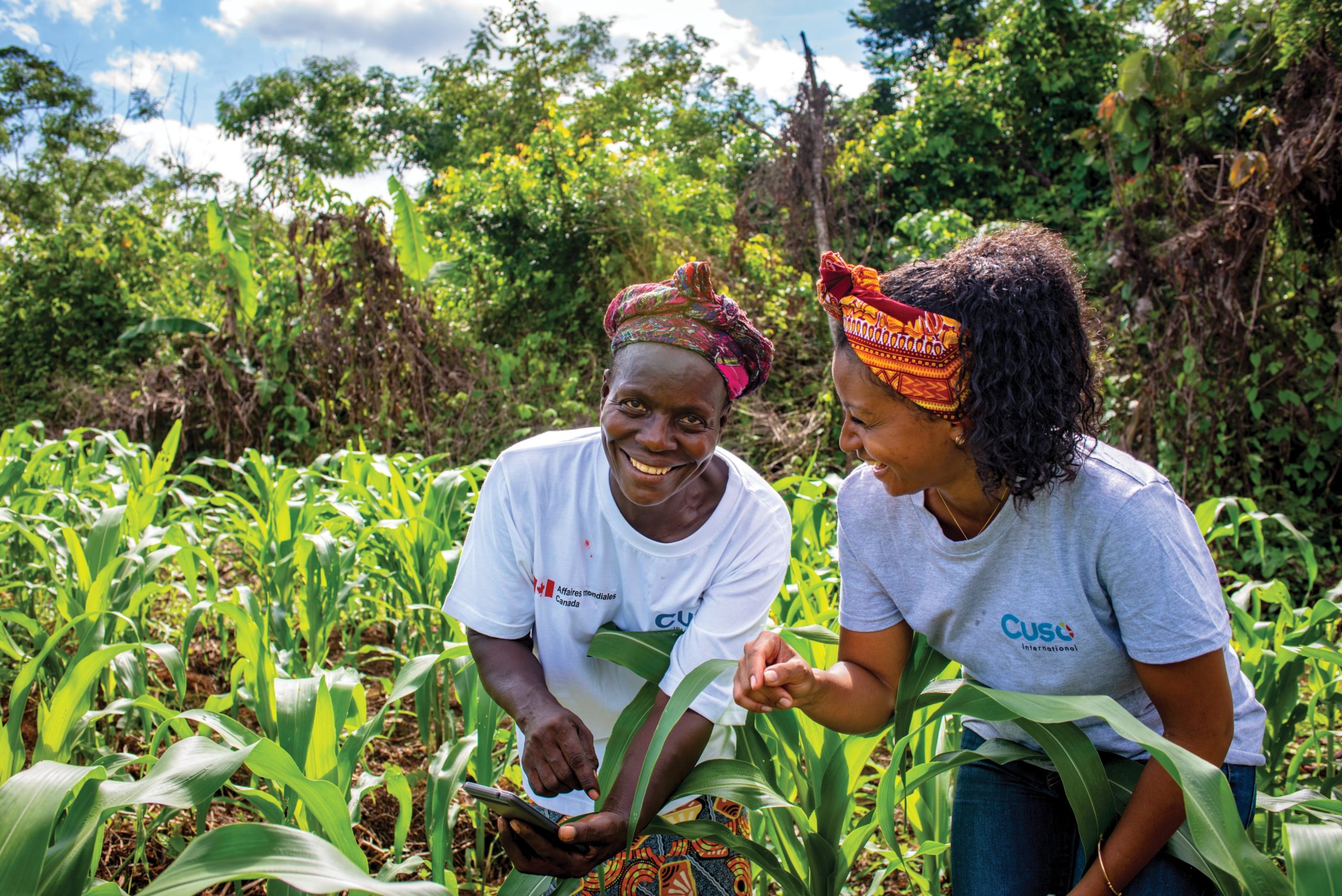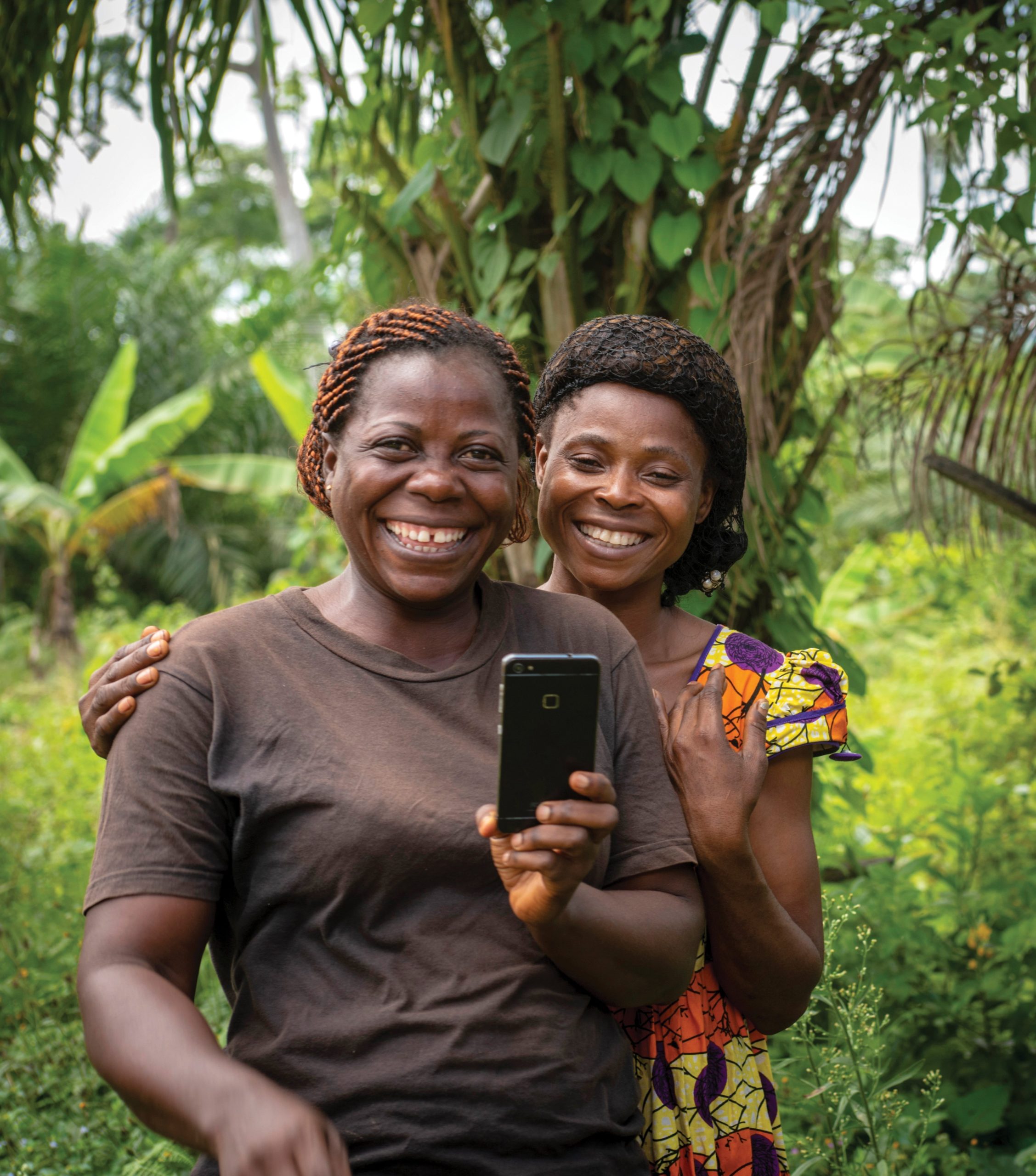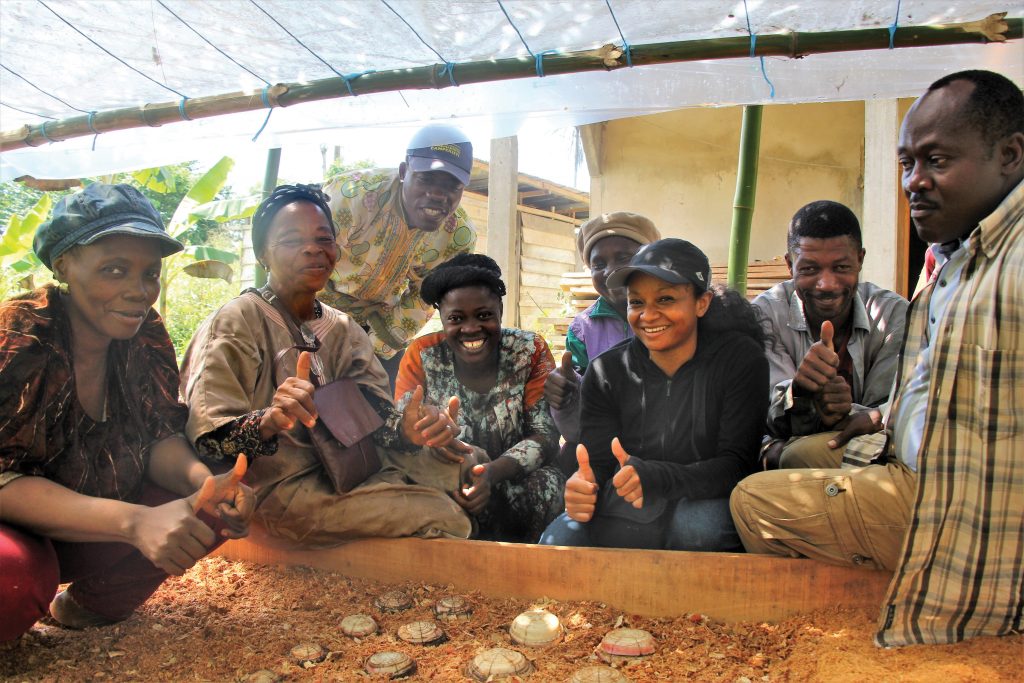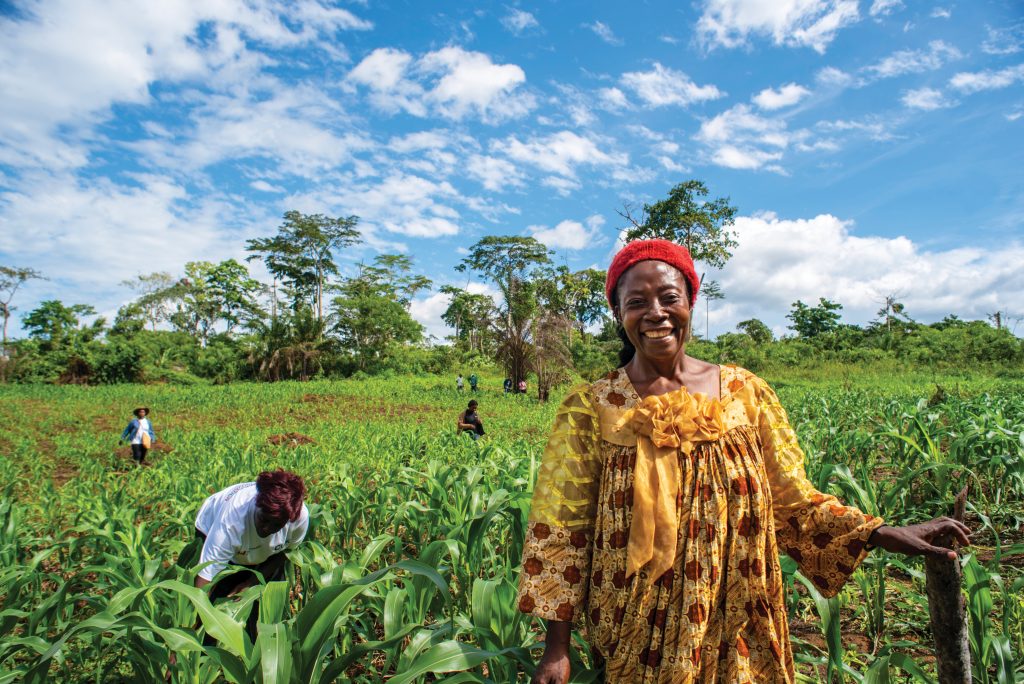There’s an app for that: women farmers build climate resilience
Story

Madame Sabine is tackling farming challenges her parents and grandparents never had to face. Rapidly changing weather patterns, unreliable rains and an increase in drought, flooding and windstorms are making farming an increasingly precarious way to earn a living in Cameroon.
Add in the effects of the COVID-19 pandemic and the results have been devastating, hitting women the hardest. It is vital, now more than ever, that we continue to share our skills and knowledge with rural women farmers. Their understanding of climate-smart farming techniques, drought-resistant crops and sustainability will be critical to their ability to survive once the pandemic is over.
“Women are the ones who do most of the family farming,” says Madame Sabine, whose family has farmed the land for generations. “We are the ones feeding our families.”
And yet women don’t have the same access to information—such as alerts for extreme weather events—as their male counterparts. This results in lower productivity levels and fewer profits for female farmers.
Madam Benda, who comes from a long line of smallholder farmers, can attest. She remembers being able to anticipate the weather when she was younger but that’s no longer the case.

The Innovation Fund project in Cameroon is focused on equal access to information for women farmers. Photo by Brian Atkinson.
“We knew when the little rains would come. We knew when to expect the big rains,” she says. “Now, it’s all unpredictable. I couldn’t plant my corn when I usually plant it because the rains didn’t come.”
Madame Sabine and Madame Benda are among 40 farmers participating in Cuso International’s program Building Up Climate Resilience of Women Farmers in Awaé, Cameroon, located 55 kilometres from the capital city of Yaoundé.
The program, one of three Innovation Fund projects selected by Cuso International alumni, aims to narrow the gap between female and male farmers.

Volunteer Nelly Rakotozafy, third from the right, is helping farmers become more climate resilient.
Cuso International volunteer Nelly Rakotozafy is among those spearheading the project. Participants receive crop seeds bred specifically for the country’s changing climate and training on improved agricultural techniques, such as a farm-friendly smartphone application.
“I’ve been working with these women and they all have stories about how climate change is affecting them,” says Nelly. “The app will give them information about what weather is predicted for the day or even hourly. If there’s a storm coming, they may choose not to plant that day.”
The mobile app contains information from training sessions, provides weather forecasts and farmers can discuss their experiences and request assistance using a chat platform.
“If one of the women is having trouble with her corn, she can share that with the group and someone may have information that can help her,” says Nelly.

The Innovation Fund project in Cameroon is focused on equal access to information for women farmers. Photo by Brian Atkinson.
In a country where agriculture accounts for roughly 70 per cent of the workforce, climate resilience and women’s economic empowerment are important factors to improve food security and achieve inclusive and sustainable economic growth.
Mobile weather stations have been installed in Awaé and Edéa, making it possible for women farmers to access precise weather data on their smart phones.
The Cuso project is a joint initiative with Cameroon’s Ministry of Environment and Nature Protection, Ministry of Agriculture and Rural Development, and the Institute of Agricultural Research for Development.
You can help support more farmers like Madame Sabine and Madame Benda by making a donation in their names. With the global COVID-19 pandemic, Cuso’s work is needed now more than ever.